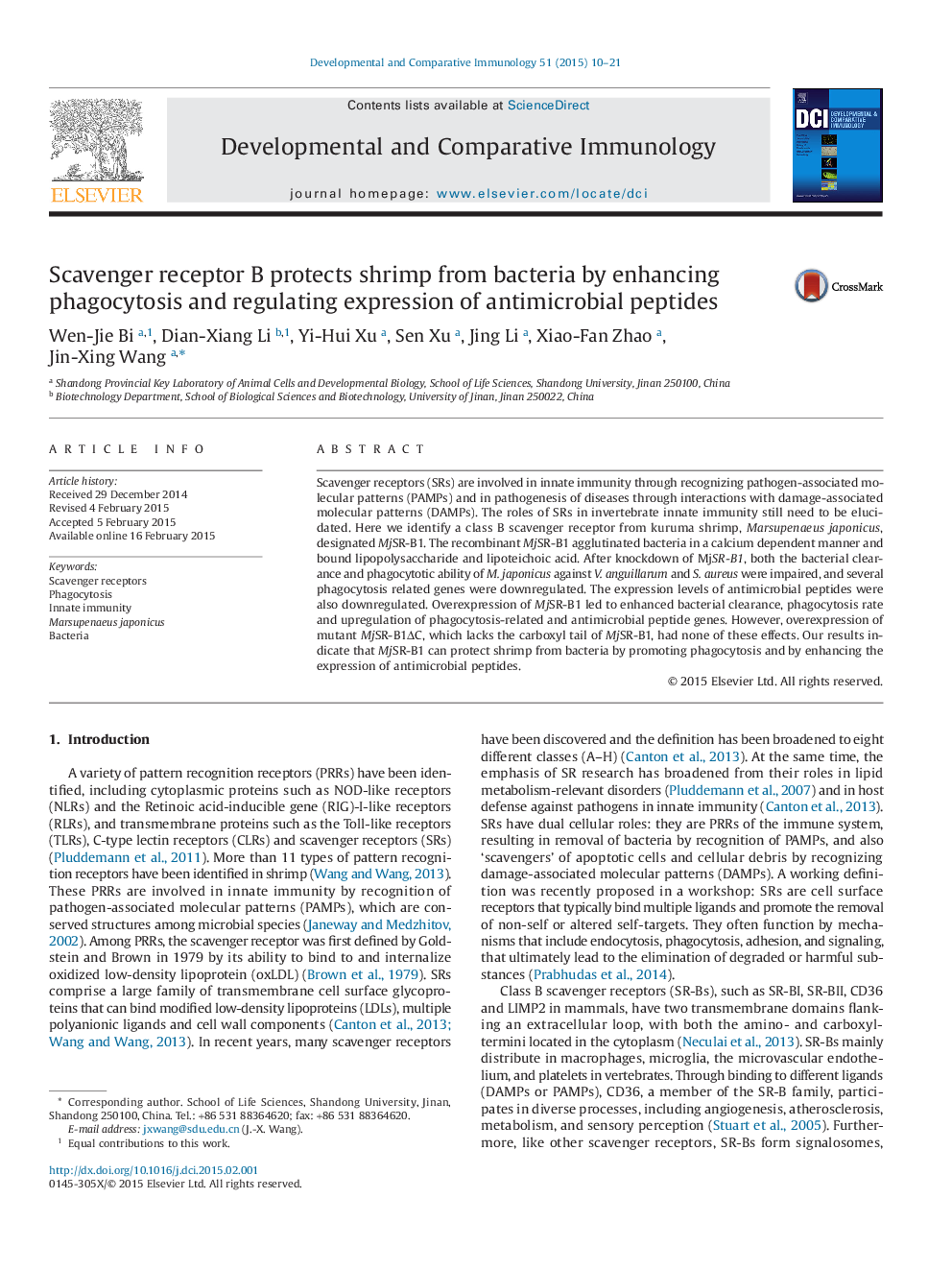| Article ID | Journal | Published Year | Pages | File Type |
|---|---|---|---|---|
| 10971416 | Developmental & Comparative Immunology | 2015 | 12 Pages |
Abstract
Scavenger receptors (SRs) are involved in innate immunity through recognizing pathogen-associated molecular patterns (PAMPs) and in pathogenesis of diseases through interactions with damage-associated molecular patterns (DAMPs). The roles of SRs in invertebrate innate immunity still need to be elucidated. Here we identify a class B scavenger receptor from kuruma shrimp, Marsupenaeus japonicus, designated MjSR-B1. The recombinant MjSR-B1 agglutinated bacteria in a calcium dependent manner and bound lipopolysaccharide and lipoteichoic acid. After knockdown of MjSR-B1, both the bacterial clearance and phagocytotic ability of M. japonicus against V. anguillarum and S. aureus were impaired, and several phagocytosis related genes were downregulated. The expression levels of antimicrobial peptides were also downregulated. Overexpression of MjSR-B1 led to enhanced bacterial clearance, phagocytosis rate and upregulation of phagocytosis-related and antimicrobial peptide genes. However, overexpression of mutant MjSR-B1ÎC, which lacks the carboxyl tail of MjSR-B1, had none of these effects. Our results indicate that MjSR-B1 can protect shrimp from bacteria by promoting phagocytosis and by enhancing the expression of antimicrobial peptides.
Related Topics
Life Sciences
Biochemistry, Genetics and Molecular Biology
Developmental Biology
Authors
Wen-Jie Bi, Dian-Xiang Li, Yi-Hui Xu, Sen Xu, Jing Li, Xiao-Fan Zhao, Jin-Xing Wang,
